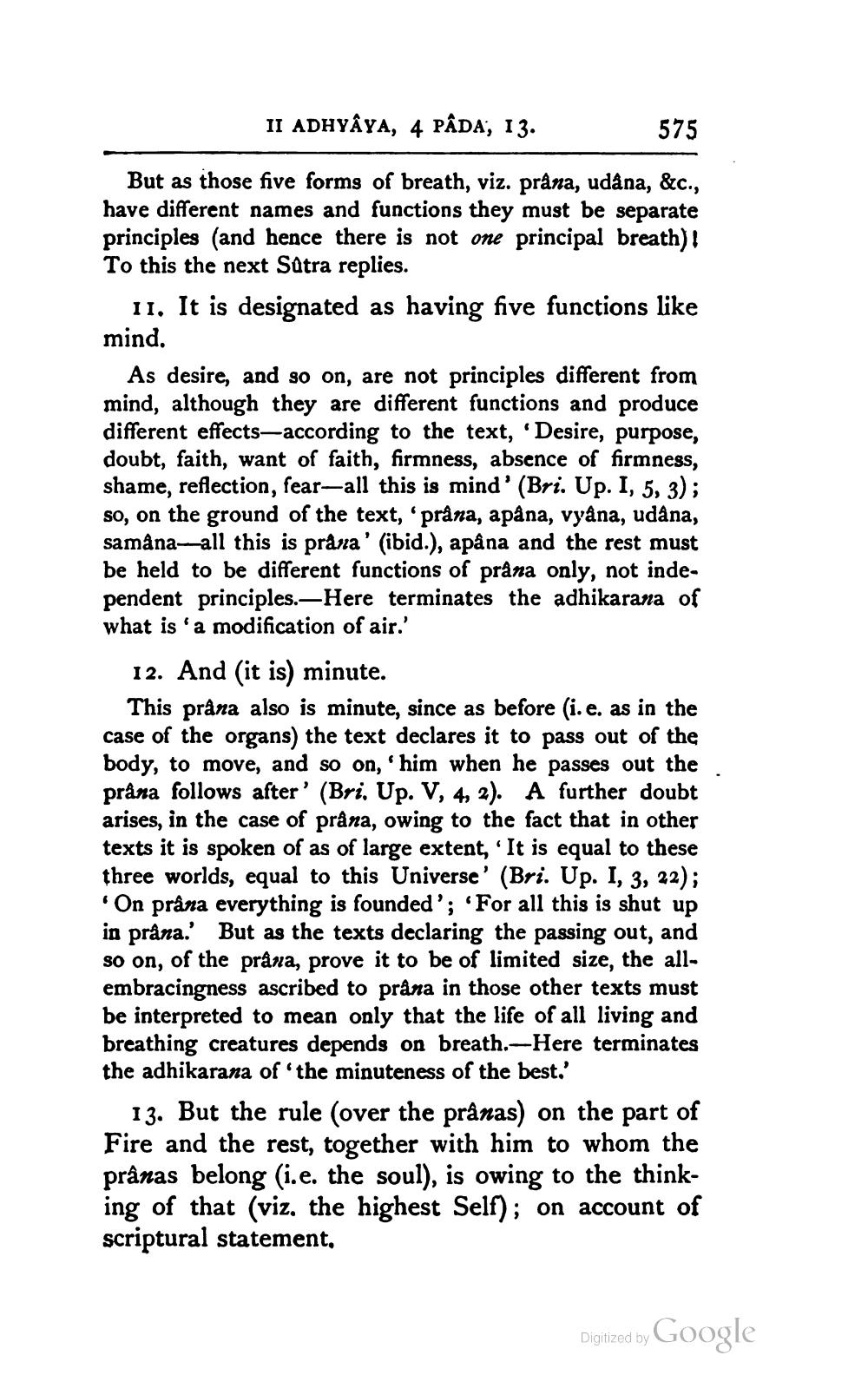________________
II ADHYÂYA, 4 PADA; 13.
575
But as those five forms of breath, viz. prâna, udana, &c., have different names and functions they must be separate principles and hence there is not one principal breath)! To this the next Sutra replies.
11. It is designated as having five functions like mind.
As desire, and so on, are not principles different from mind, although they are different functions and produce different effects-according to the text, 'Desire, purpose, doubt, faith, want of faith, firmness, absence of firmness, shame, reflection, fear-all this is mind' (Bri. Up. I, 5, 3); so, on the ground of the text, 'prana, apâna, vyana, udana, samâna-all this is prana' (ibid.), apâna and the rest must be held to be different functions of prâna only, not independent principles.—Here terminates the adhikarana of what is a modification of air.'
12. And (it is) minute.
This prâna also is minute, since as before (i.e. as in the case of the organs) the text declares it to pass out of the body, to move, and so on,'him when he passes out the pråna follows after' (Bri, Up. V, 4, 2). A further doubt arises, in the case of prâna, owing to the fact that in other texts it is spoken of as of large extent, 'It is equal to these three worlds, equal to this Universe' (Bri. Up. I, 3, 22);
On prâna everything is founded'; `For all this is shut up in prana.' But as the texts declaring the passing out, and so on, of the prâna, prove it to be of limited size, the allembracingness ascribed to prâna in those other texts must be interpreted to mean only that the life of all living and breathing creatures depends on breath.-Here terminates the adhikarana of the minuteness of the best.'
13. But the rule (over the pranas) on the part of Fire and the rest, together with him to whom the prânas belong (i.e. the soul), is owing to the thinking of that (viz, the highest Self); on account of scriptural statement,
Digitized by
Digitized by Google




